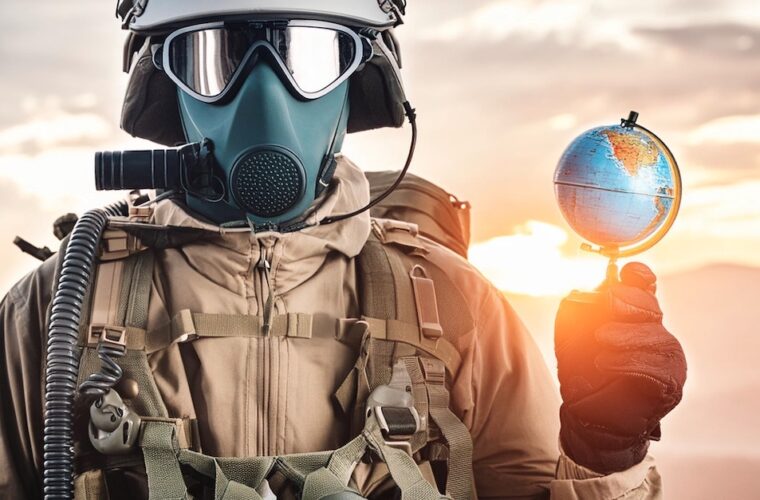World Water Day, observed annually on March 22 since 1993, is a United Nations event emphasizing the significance of freshwater resources. It serves as a platform to celebrate water and shed light on the plight of the 2.2 billion individuals lacking access to clean water, urging concerted efforts to address the global water crisis.
At its core, World Water Day aims to advance Sustainable Development Goal 6, ensuring water and sanitation for all by 2030. Each year, UN-Water, the UN’s body overseeing water and sanitation issues, selects a theme; in 2023, the focus was on hastening change, while in 2024, the emphasis will be on utilizing water as a tool for fostering peace.
Water for peace
The initiative for World Water Day, scheduled for March 22, 2024, has commenced. This year’s theme, “Water for Peace,” underscores water’s pivotal role in fostering global stability and prosperity. World Water Day 2024 draws attention to the potential escalation of tensions between communities and nations due to water scarcity, pollution, and unequal access. With over 3 billion people relying on water that traverses international boundaries, it is concerning that only 24 out of 153 countries sharing water bodies have comprehensive cooperation agreements.
As the impacts of climate change intensify and the world’s population expands, it becomes imperative to unite in safeguarding and preserving our most invaluable resource. Collaborative efforts to balance all individuals’ rights and needs can transform water into a stabilizing force and a driver of sustainable development.
World Water Day, orchestrated by UN-Water, a United Nations entity, serves as a platform to spotlight critical water-related issues annually, catalyzing efforts to address the global water and sanitation challenges. In 2024, the Task Force responsible for this initiative, comprised of UN-Water Members and Partners, is led by the UN Economic Commission for Europe (UNECE) and the UN Educational, Scientific and Cultural Organization (UNESCO).
Key messages for World Water Day 2024
Water has the power to either foster harmony or ignite discord. In instances of water scarcity, pollution, or inequitable access, tensions can escalate. Collaborative efforts in managing water resources enable equitable water distribution, thereby contributing to global stability. The nexus between prosperity, peace, and water is undeniable. Amidst the challenges posed by climate change, mass migration, and political instability, prioritizing cooperation on water issues is paramount for nations.
Water serves as a beacon of hope in times of crisis. By embracing fair and sustainable water usage practices, from international agreements under the United Nations to grassroots actions, we can cultivate unity among communities and nations, paving the way towards peace and prosperity.

These innovators are improving access to clean water
Here are three ways innovation is helping make progress on clean water security.
Wastewater treatment
Approximately 80% of the world’s wastewater is released into the environment without undergoing any treatment, while nearly half of the global population lacks access to properly managed sanitation facilities at home. This negligent handling of sewage and other wastewater is a significant contributor to the spread of diseases such as typhoid fever, cholera, diarrheal illnesses, and parasitic infections, resulting in illness and death. Moreover, it poses a threat to coastal, marine, and river ecosystems.
Indra Water specializes in developing treatment systems that recycle both domestic and industrial wastewater for reuse. Their technology boasts an impressive recovery rate of 95%, surpassing traditional systems in terms of affordability, scalability, and ease of implementation.
Epic Cleantec is focused on addressing wastewater challenges, aiming to slash water consumption for major building operators in the United States by as much as 95%. Their innovative modular system repurposes water for non-potable purposes and harnesses energy from wastewater heat. This recovered energy can be utilized to pre-warm domestic hot water supplies, enhancing energy efficiency. Additionally, the process generates sustainable soil enhancers, further contributing to environmental sustainability.
Cleaning polluted water
The demand for clean drinking water is rising, with projections indicating a 20-30% surge in water usage by 2050 due to factors such as industrial expansion, population growth, and the effects of climate change. However, our water sources are increasingly threatened by harmful pollutants like chemicals, plastics, and microorganisms, contaminating lakes, rivers, and oceans.
Agriculture stands out as a major contributor to water pollution, as rainfall carries fertilizers, animal waste, and pesticides into water bodies. Wastewater and sewage from residential and industrial sources further exacerbate the issue, while stormwater runoff from impervious surfaces introduces chemicals, oil, and other pollutants into waterways.
To combat the challenge of tainted drinking water, Wateroam has developed a portable filtration system that can purify water in a matter of minutes. This technology, designed to focus on rural and disaster-stricken communities, operates without electricity and can be implemented for as little as $2 per person annually. Already, it has made a tangible difference in the lives of over 250,000 individuals.
Seawater desalination
Desalination involves the removal of dissolved mineral salts from seawater to produce pure water, offering a promising solution to global water shortages. However, much of the existing technology in this field is either under development or expensive to implement, often relying on fossil fuels and being energy-intensive.
Oneka, based in Canada, is pioneering a desalination approach powered by wave energy. Their system utilizes the natural movement of the sea to drive pumping, filtration, and desalination processes, capable of supplying water for populations ranging from 20 to 1500 individuals per day. Notably, this system operates without the need for electricity or land, producing no greenhouse gas emissions.
Another innovative company, Desolenator, harnesses renewable energy for desalination through solar thermal technology. Their solution, free of harmful chemicals, is the world’s first solar thermal desalination system, capable of producing water with varying levels of purity. Beyond providing drinking water, it can generate ultra-pure water suitable for specialized applications such as green hydrogen production.



